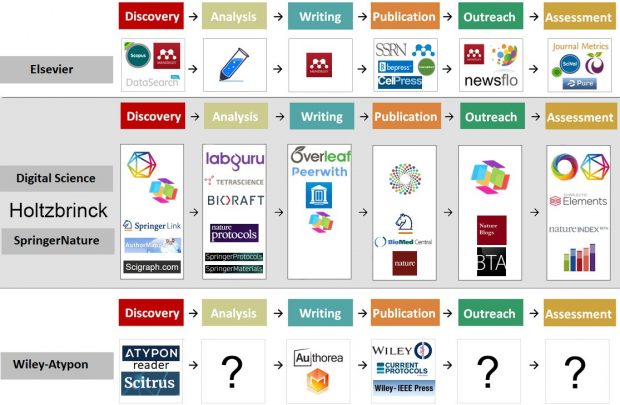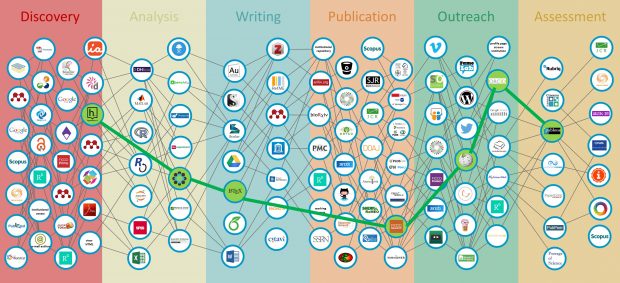Here is an unrolled thread of Brandy Schillace at Bluesky
My very last issue (on ..) has now come out with BMJ Medical Humanities: I have stepped down from my role as Editor in Chief. There are a lot of factors—after 17 years editing two consecutive journals, it was time. But there’s more, and I feel we should talk about the climate of #academic publishing.
When I began in 2007, editing a medical anthropology #journal for Springer, I had complete control of process. Articles came to me directly, I sent them personally to reviewed, who replied to me, and when accepted I worked one on one with a dedicated copy editor. A lot to juggle, but great QC.
Ours was a top ranked publication with high impact factor; we processed a lot of material—and yes, that was lots of paper shuffling. But we had an associate build a database of reviewers, and we managed just fine. Imagine! You sent a paper to the editor! And she had it copy edited!
In 2010 or so, Springer forced all journals to use a new online system. On one hand, a bit easier on me… the system kept track of where papers were, who was reviewing. I didn’t love it. But I didn’t hate it. Yet. Unfortunately, though, the system made other things invisible. Who ran the thing?
It was kept up by online assistants who worked overseas—largely in India. It looked like we were just using plug and play software, but there were people keeping all that tech going; ghost workers in the #AI. Except I couldn’t just speak to them if something went wrong. And things did go wrong.
And then something worse happened. They took away my copy editor. I had to send things through the new system to be copy edited—and that too happened overseas. There were teams of people editing all genres, with no specificity, and without English as a first language. Citations were a nightmare.
Authors complained and I would reach out to my contact, who had to reach out to their contacts, and so on in three time zones every time something went awry. But that’s not all. I was losing control of the process, unable to see it clearly. Reviewed got mad at the system too. Authors hated it.I left that journal to take over BMJ Medical Humanities in 2017. The publisher was smaller and I had far more contact—all good things. The online system was, however, a beast. No better. Possibly worse. And yet again all copy edits were handled overseas. I wanted CMA style; it crashed the system
(It had to do with the software in use but also the four levels of people, time zones, and language issues among us). Everything too ages, but ultimately I had the support of a good network of people—including an assistant through BMJ, and my associate editors and colleagues.But let’s skip ahead— I had begun a big push to diversify our journal. We started Path to Publication, helping those without institutional support. It was a lot of work. For my meager stipend, about 25 hrs a week. But I had support. Then … About 2-3 years ago, things began to change. Was it Covid? Maybe. Hard to say.
There was a reorganization. We lost my immediate report and the assistant. Plan S was putting pressure on everyone to go OA but that would mean costs fell on authors—and it would certainly end all our diversity work. Who could afford to pay the fees, especially from the humanities? We pushed back.
But a new emphasis on profit, and on publishing more and more papers had taken hold. I was questioned about my QC; why wasn’t I accepting more papers, faster? Meanwhile, system problems persisted and authors and reviewers already overtaxed were giving up. We continued to publish edgy DEI work—
One of our most important pieces was about white supremacy culture in medicine. There was blowback; I got a lot of ugly emails. Thankfully, BMJ stood by my decision to publish it. I’m grateful. But the flurry around it should have rolled a warning bell. More changes were on the horizon.
The physician burnout discourse emphasises organisational challenges and personal well-being as primary points of intervention. However, these foci have minimally impacted this worsening public health…
Not long after, I began to get notices from behind the scenes people—those who received articles before I did, through the online system. They were ‘flagging’ articles they deemed ‘problematic.’ Now, they often had reason… perhaps they hadn’t completed the patient anonymization, or etc. But.
But—*someone else* was determining things before I could read the work. It’s easy to see how this affects decision making—harder for me to read unbiased. And sometimes, the problems weren’t really a failure to complete a step. In another BMJ journal, a paper accepted by the EiC was pulled.
Somewhere behind the scenes, we as editors were losing the academic freedom to evaluate papers for ourselves. It’s not outright. And I’m sure it’s in the name of safety and efficiency. But I’ve watched as one by one, things that used to be the purview of editors have been lost. And it’s everywhere.
I am not here to attack my past publishers; they are part of a giant revolution that stretches from academia to finders private and public. It has been accelerated by Covid and by the political turn from DEI, from diversity and autonomy as good things—to ‘problematic’ things. We are not profitable.
There are many good things that have come from my time as an editor. I enjoyed working with BMJ and still prefer it to many other institutions (and they did fight for me, and for papers I wanted published and authors I wanted protected). But the academic publishing world is not what it was.
I wish all luck and strength to those stepping into editorial shoes. And I can hope things will get better. But with the encroachment of AI, I imagine things will get worse before they get better. And that makes it harder for everyone.
* BMJ = British Medical Journal
* DEI = diversity, equity and inclusion
* EIC = editor in chief




